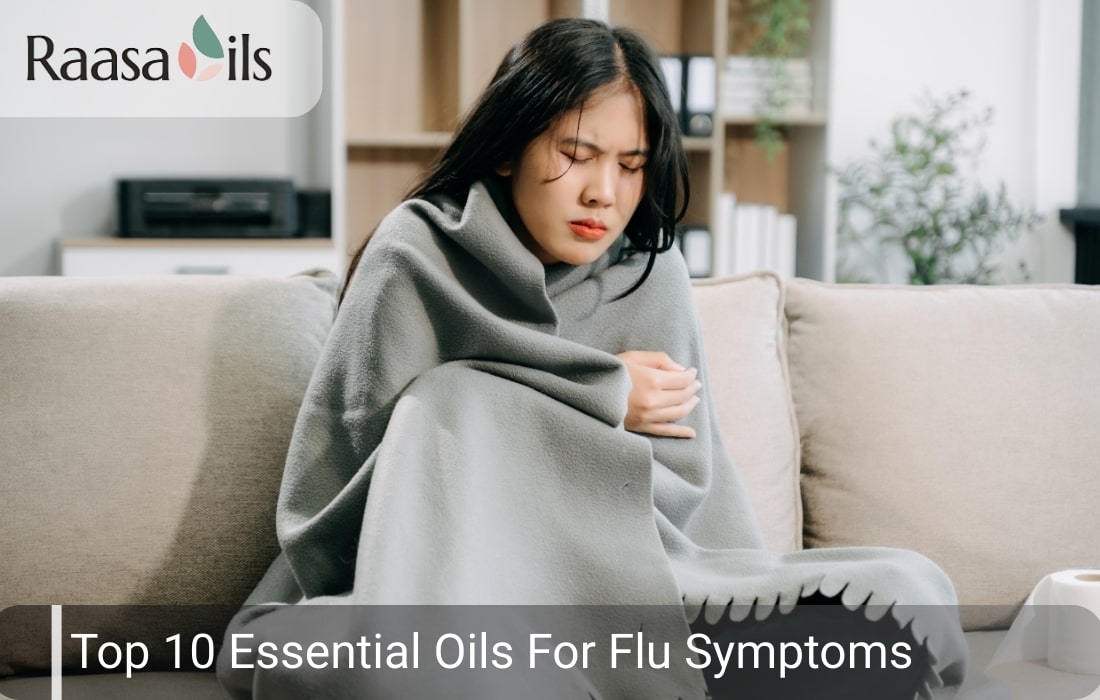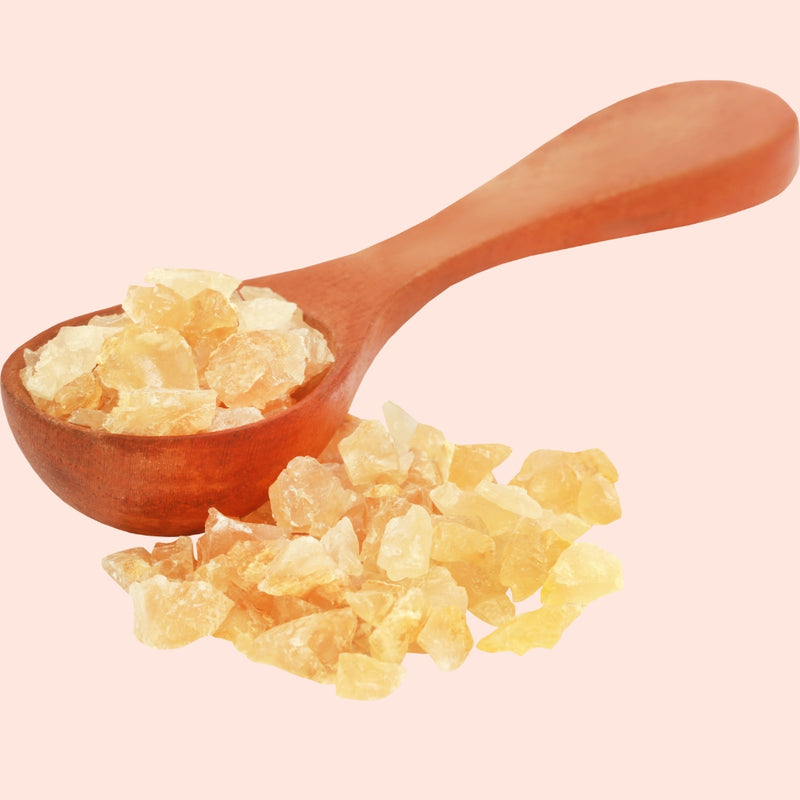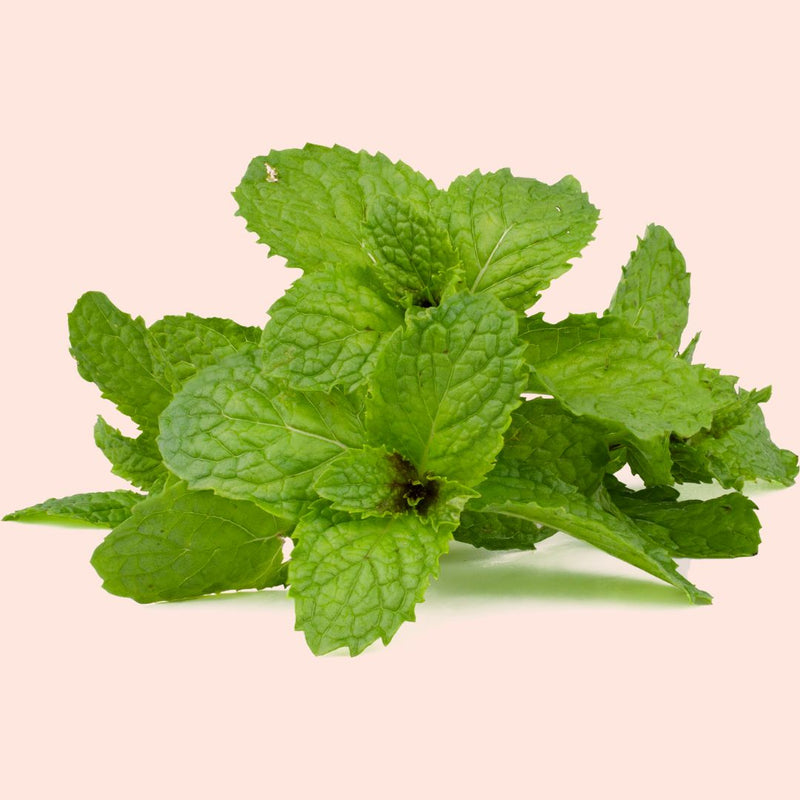Every year, the flu impacts people around us. It is also known as influenza, a highly contagious disease. Many people seek natural remedies to cure the symptoms and support the immune system. Essential oils are naturally concentrated plant extracts and have gained popularity for their healing properties. The correct use of oil offers a soothing and supportive approach to managing flu-related discomforts such as congestion, sore throat, and muscle pain. Numerous essential oils have antiviral, antibacterial, and anti-inflammatory properties, helping your body to fight the flu and feel better faster. Incorporating these natural oils in your daily routine makes them a valuable addition to your wellness regimen. Let’s understand the essential oils.
Top 10 Essential Oils for Flu Prevention
There are the top 10 essential oils that are a natural remedy for easing the symptoms of flu due to their strong properties. Several oils have a long history of traditional use for their ability to fight viruses, reduce inflammation, and help with respiratory issues, offering a supportive and comprehensive approach to wellness during sickness.
1. Frankincense Essential Oil for Flu
Frankincense essential oil gives speedy recovery from flu symptoms when used in the correct manner. It is highly valued for its immunity-boosting and anti-inflammatory properties. It is a great help to reduce inflammation in the respiratory tract, which allows us to breathe easily.
When the fragrance of frankincense essential oil diffuses in the air, it creates a calming atmosphere, alleviates stress, and promotes restful sleep. It is witnessed that both of them are crucial for a speedy recovery from the flu or any illness.
2. Lemon Essential Oil for Flu
Lemon essential oil is full of Vitamin C and has a zesty, citrussy, and fresh fragrance. The refreshing and uplifting scent and its powerful antimicrobial properties help to clean the air from germs and bacteria present when diffused into the atmosphere.
The fragrance also supports the lymphatic system, opening up nasal congestion and promoting the body’s natural detoxification process. To soothe a sore throat, this essential oil can be added to a cup of warm water for a gargle solution.
3. Oregano Essential Oil for Flu
Oregano essential oil is made from air-dried leaves and shoots of the plant. This essential oil has strong antiviral and antibacterial properties. To fight infection, the essential oil has been proven to be the most potent compound. Due to its potency, it is always recommended to dilute with a carrier oil before topical application and in a diffuser.
In the symptoms of flu, you can rub the essential oil in the chest, back, and temple area to clear the congestion, along with easing the body pain related to flu.
4. Peppermint Essential Oil for Flu
Peppermint essential oil is an excellent remedy for symptoms of flu, especially in congestion and headaches. Peppermint essential oil has Menthol, which gives a cooling effect and is the main component of it. 
Menthol helps open up airways and nasal passages and provides a cooling sensation that can relieve muscle cramps, headaches, and fever. Inhaling the vapour of peppermint essential oil can quickly clear a clogged nose and provide on-the-spot relief.
5. Cinnamon Essential Oil for Flu
Cinnamon essential oil is investigated for its antiviral and antibacterial properties. Cinnamon is a kitchen ingredient, used for cooking, and simultaneously it is used for medicinal purposes. Its warm and spicy aroma can help comfort and provide warmth to the body during the flu.
Cinnamon contains cinnamaldehyde, which works to fight off pathogens and heals quickly. This is a great oil to diffuse in the atmosphere to purify the air and create a cosy and protective environment during illness.
6. Lavender Essential Oil for Flu
Lavender essential oil has a sweet fragrance and is recognised for its calming and relaxing effects. When you are suffering from the flu, it helps promote restful sleep, which is much needed for recovery. Its anti-inflammatory properties can also soothe a sore throat and ease muscle tension.

Applying diluted lavender essential oil to the temples can help ease headaches. Lavender essential oil is a very good option to use in a diffuser to relax the atmosphere and boost the mood.
7. Clove Essential Oil for Flu
Clove essential oil is primarily rich in eugenol, and it has antibacterial and antiviral compounds with strong pain-relieving properties. It can be particularly effective for a sore throat, inflammation, and congestion.
In the season of flu, clove essential oil must be applied topically and diffused in the air to kill the airborne infections that accompany the flu. Clove essential oil is strong in nature and should be used frugally to avoid any kind of reaction and in a diluted form with a carrier oil to avoid skin irritation.
8. Eucalyptus Essential Oil for Flu
Perhaps a well-known essential oil useful for flu is “Eucalyptus essential oil”. It is most beneficial for respiratory issues. It eases the respiratory imbalance; the primary component of the essential oil is eucalyptol, which acts as an expectorant.
The eucalyptus essential oil helps to loosen mucus, clear congestion, and reduce the burning sensation that occurs due to the flu. It is wonderful for steam inhalation, and if used as a diffusing agent, it helps to open up blocked nasal passages and provide relief from coughs.
9. Rosemary Essential Oil for Flu
Rosemary essential oil has powerful antibacterial and anti-inflammatory characteristics, helping to clear respiratory passages and relieve body and muscle pain associated with the flu. Rosemary can be used in different forms to ease the ailment.
Inhaling rosemary essential oil during the symptoms of flu can help improve focus, alertness, and get rid of a runny nose, which can be beneficial when feeling fatigued. Essential oil has a strong ability to cure illness naturally, as they are naturally concentrated oils. Make sure to dilute them before use to avoid irritation.
10. Tea Tree Essential Oil for Flu
Tea tree essential oil is a naturally antiseptic and antiviral agent. It is an excellent choice for disinfecting surfaces and purifying the air when diffused. In the monsoon season, when flu is contagious, tea tree oil is a lifesaver to protect us from unwanted bacteria and viruses.
It is used for topical application and in an electrical diffuser to get rid of the infectious substances, leaving the atmosphere clean and free from infections. Tea tree essential oil has strong properties that make it a key player in confronting germs during flu season.
Essential Oil Blend for Flu
Customising your blend with essential oils can be a powerful way to address multiple flu symptoms at once, providing overall relief. These blends are designed to help clear congestion, soothe heaviness, and support the body's natural defences.
Ingredients
- 2 Drops of Eucalyptus Essential Oil
- 2 Drops of Lemon Essential Oil
- 1 Drop of Peppermint Essential Oil
- 1 Drop of Clove Essential Oil
- 1 tablespoon Carrier Oil (Jojoba, Coconut, or Almond oil)
Directions
- For use as a chest rub or any such topical application, dilute the essential oils with the carrier oil as per the quantity mentioned in a small glass bottle, and mix it well. This blend can be used for several types of applications.
- Add a few drops to a diffuser as per the instructions manual of your device to purify the air.
Frequently Asked Questions
Essential oils are a great addition to your wellness plan when dealing with influenza; it is equally important to know how to use them safely and effectively. The following response guides the most common questions asked about the use of essential oils for flu symptoms.
Q1. Can essential oils help with the flu?
Ans: Yes, there are essential oils that can help treat flu symptoms. Several essential oils have antiviral, antibacterial, and anti-inflammatory properties that can help increase immunity and take care of respiratory problems like congestion and coughing, along with providing a sense of comfort and well-being.
Q2. How to use essential oils for the flu?
Ans: The most common question asked by people is whether essential oils are very easy to use with certain methods, including diffusing the essential oils into the air to purify the environment and support respiratory health, or applying them topically to the chest area, neck, or back by mixing them with a carrier oil to soothe congestion and remove muscle stiffness and pain.
Q3. Where to apply essential oils for the flu?
Ans: The common symptoms of flu are body aches along with a cough, sore throat, and headache; this also includes sudden onset of fever, runny nose. For respiratory relief, it is recommended to apply topically diluted essential oils to the chest, back, palms, and bottoms of the feet. For headaches, apply a small amount to the temple area and the back of the neck. Using diluted carrier oil prevents skin irritation.
Conclusion
Essential oils offer a gentle, natural, and yet powerful approach to managing flu symptoms, providing relief from congestion, body aches, and fatigue. The essential oils are a supportive tool for our body; they help fight influenza naturally and effectively. By choosing a few oils like eucalyptus, peppermint, and lavender, you can create a powerful wellness routine that complements your body's own healing process. If your symptoms are severe and persistent, it is always best to check in with a doctor and get the medication.
DISCLAIMER
This content is for informational purposes only and is not a substitute for professional medical advice, diagnosis, or treatment. Always consult a healthcare provider before using essential oils for any health condition.





















